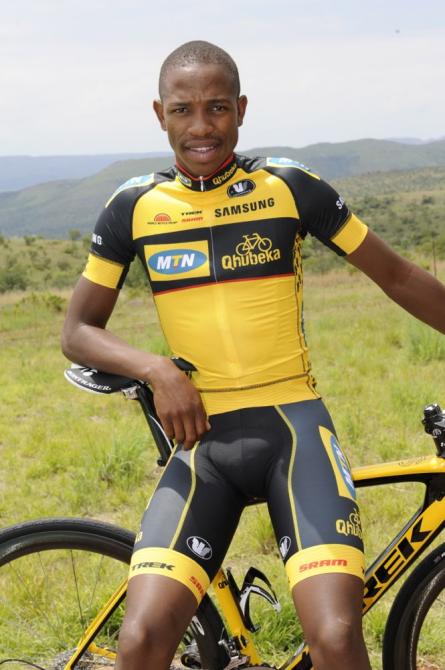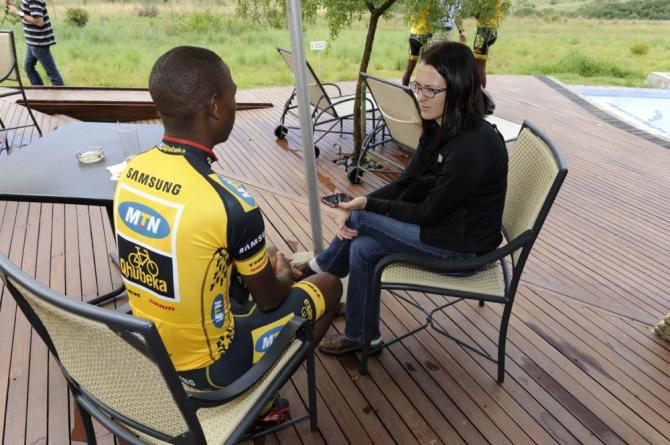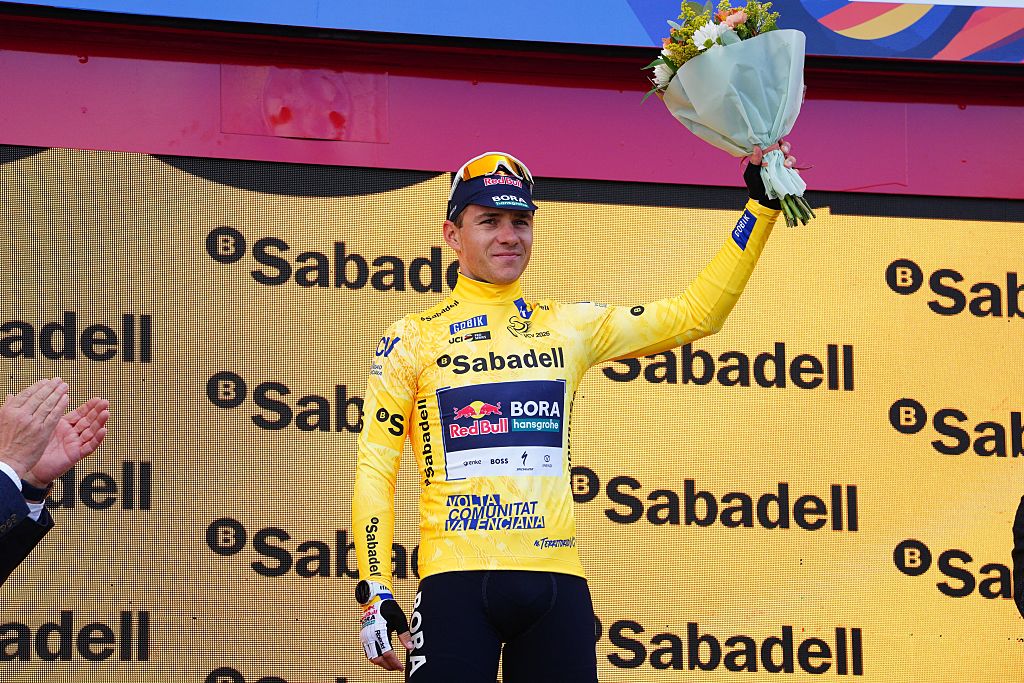Songezo Jim living his dream with MTN-Qhubeka
Orphaned rider learns to ride at 14, becomes pro at 22
The latest race content, interviews, features, reviews and expert buying guides, direct to your inbox!
You are now subscribed
Your newsletter sign-up was successful


Some professional cyclists come to the sport later in life than most, and can go on to have successful careers, but most at least knew how to ride a bike when they were children. Songezo Jim personifies the aspirations, diverse backgrounds and unbridled enthusiasm of his MTN-Qhubeka p/b Samsung team: having never even touched a bike at 14, this South African will live his dream when he settles down in Lucca, Italy for his first European professional season in 2013.
Jim was born in Umtata in the Eastern Cape of South Africa in 1990, but at the age of 12, his family suffered its first tragic loss with the death of his mother. Two years later, his father passed away as well, leaving the orphan with no choice but to travel 1000km to live with his aunt. Professional cycling, or cycling of any manner, was not on the radar for Jim.
"In the Eastern Cape, we actually didn't have bikes there. I knew there was something called a bicycle, but I didn't know anything about them," Jim told Cyclingnews at the team's camp in Johannesburg. He had been a good soccer player back in the Eastern Cape, and later this innate physical talent would come in handy.
His introduction to the bike and the sport came when the Cape Argus Cycle Tour, a huge timed race and recreational challenge that attracts tens of thousands to Cape Town, streamed past his aunt's house in a splash of color and motion.
"When I saw the cycling, and I had never seen anything like it," Jim said. He instantly fell in love with the sport and wanted to jump right in and race. The problem was, he'd never ridden a bike.
"I immediately wanted to compete. Even at the time when I wasn't able to ride a bike, I wanted to compete. I loved it."
Very soon he joined a cycling club, which lent him a bike. A friend taught him step by step to ride on a BMX bike, and within a year's time he was in the Argus Tour, riding along slowly with the recreational riders. It wasn't long before he gained enough skill, fitness and confidence to do some small inter-club races, and immediately his talents showed through. "In the club, we did some races against each other. It got more and more exciting. I got into the smaller races, and decided I could be something one day and wanted to continue."
The latest race content, interviews, features, reviews and expert buying guides, direct to your inbox!
Of course, his early career had the sorts of ups and downs of any rider, some quite literally down - on the ground - when his lack of experience showed. "I crashed a lot at the start - I didn't know how to use the cleats. I would forget when I would stop because I was not used to the cleats and everything. Actually going faster is much easier than going slower, because when you are going faster you know what you're doing. When you go slower you are doubting everything and you're still very scared. When you're going faster you get confidence."
The crashes nearly ended his career, not due to the seriousness of injury, but because the wounds stopped him from being able to fulfill his part of the chores in the household.
"At home, when I first started riding I crashed and they said I had to stop cycling. Because we have responsibilities at home to cook and clean, and when you crash you can't do that, you have to stop cycling because it doesn't give you anything.
"I had to sneak around and go train and come back and pretend I never went training. They tried to stop me and I didn't want to stop, so eventually they gave up and let me."
His first win came at 17 in a junior race with his club in Khayelitsha, Velokhaya, after showing top results in the "fun rides" that make up the majority of South Africa's amateur racing scene. When he won that first elite race, he began to see his future, and that future was on the bike.
"At home they actually started supporting me after I won, when they actually got to see I'm taking this seriously. Even though they didn't know the cycling in detail, they supported me."
A later stand-out performance in the Giro del Capo in 2010, where he was the first amateur in the penultimate stage's 5.5km hillclimb time trial, earned him a trip to Europe with the South African national team to compete in the Nations Cup U23 races across Europe.
His European campaign started off with a criterium in Belgium, which wasn't part of the national team program, so he raced it in his own team kit. "I was very excited for my first race there." The experience proved to be highly educational, something that will allow him to handle the demands of his new professional campaign in 2013.
"Belgium is very good - it's good to go first and do the kermesses - because of the speed of the peloton, and the roads are so small. The bunches in South Africa are not so big and the distances are not so long as in Europe. The racing is so crazy there, and you get to learn a lot. The racing is so technical, you can learn how to corner, how to position yourself."
"Then I knew what I wanted in life. I got to know exactly that I want to be a professional cyclist. From there I came here because I started winning a few races and got confidence in myself."
What does his family think about his impending departure in March and the beginning of his professional career?
"Now they are very proud of me, they can see that I am doing what I really want."
With his bright smile and easy manner, Songezo Jim is sure to charm cycling fans across the world, but his cheerfulness and grace is all the more surprising considering his tragic childhood.
In his club profile, he gives this advice to those children who have lost their parents at a young age, and it's clear he's employed it for himself: "...always be positive. Things happen that you have no influence over and you have to accept that you can't change the situation. There is no use feeling sorry for yourself; instead you have to realise that no matter what circumstances, we all have potential and we have to use the talents God gave us."

Laura Weislo has been with Cyclingnews since 2006 after making a switch from a career in science. As Managing Editor, she coordinates coverage for North American events and global news. As former elite-level road racer who dabbled in cyclo-cross and track, Laura has a passion for all three disciplines. When not working she likes to go camping and explore lesser traveled roads, paths and gravel tracks. Laura specialises in covering doping, anti-doping, UCI governance and performing data analysis.
